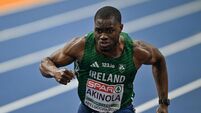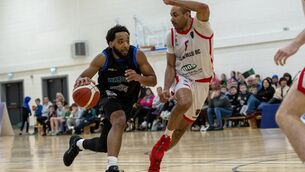Off court, LeBron will always have edge on Jordan

At the start of every sporting year it’s customary — for columnists and commentators, at least — to wonder what the following 12 months will hold. So, it is with 2018, with most of its big questions revolving around the confirmation of greatness.
Here at home, can anyone stop Dublin pulling off the four in a row? In soccer, will Messi finally win the World Cup and put to bed the one thing Maradona has over him in the argument of who is football’s GOAT? In golf, can the man currently ranked the world’s 656th-best player, a certain Tiger Woods, contend again 21 years after he first left Augusta and the world reeling in his wake?















